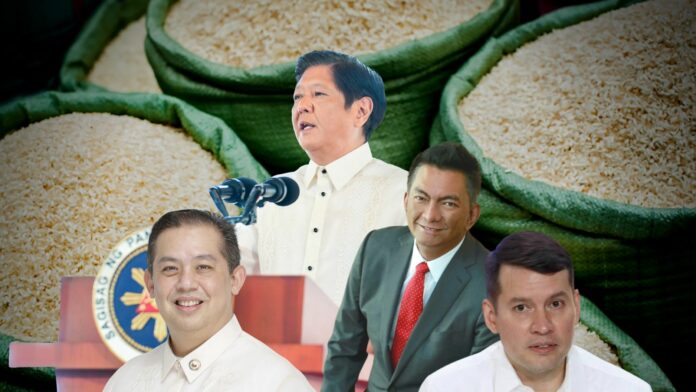President Ferdinand Marcos Jr.’s imposition of a cap in the retail price of rice rolled back cost of the grain in Vietnam, posting their biggest price declines last week since the increases following the decision of India to ban export of certain rice varieties in July.
Vietnam was the third largest exporter of rice last year and a major import source for the Philippines.
Vietnamese news site VNExpress reported that 5 percent broken Vietnam rice prices have fallen by 2.3 percent since Tuesday—the day President Marcos’ price ceiling of P41 per kilo of regular-milled rice and P45 a kilo for well-milled rice took effect—to $628 a ton on Thursday, “the biggest plunges since India banned the export of non-basmati white rice” as some import orders from Manila were canceled.
India supplies over 40 percent of global rice exports while the Philippines is one of the biggest importers of the grain in the world. Manila imported 3.79 million tons of rice in 2022, up 37 percent, according to the Bureau of Plant Industry.
Citing Vietnamese rice traders, the news site reported that Philippine importers have canceled orders and sought delays in some orders due to fear of losses following the imposition of the price ceiling that was meant to tame inflation in the country and stamp out price manipulators.
Albay Rep. Joey Salceda, chairman of the House ways and means committee, said President Marcos’ imposition of the price ceiling and subsequent raids conducted by Speaker Martin Romualdez, brought some sanity back in the trading of rice. He said the India export ban and the specter of an El Nino episode that could hurt local harvest drove rice prices to unreasonable levels, especially with the sufficient supply of the grain domestically.
“The cap ended the rice price spike. It is now clear that soaring cost of the grain is artificial, due to market speculation and rice traders driven by greed. Now, we have to manage our rice inventory better to avoid fueling speculation here and in the global rice market,” Salceda stressed.
Quezon 1st District Rep. Mark Enverga, who chairs the House Committee on Agriculture and Food, said the President’s decision to impose price ceiling on rice, complemented by a series of warehouse inspections against suspected rice hoarders by Speaker Romualdez and the Bureau of Customs, helped stabilize the rice market despite global uncertainties.
“President Marcos and Speaker Romualdez showed exemplary leadership and visionary strategies in tackling the intricate matter of rice pricing. Their decisive actions, notably the implementation of a price ceiling on rice, were instrumental in upholding stability in this vital commodity, even amidst the turbulent tides of the global market,” Enverga, a stalwart of the Nationalist People’s Coalition (NPC), said.
The administration of President Marcos sees the market intervention as a temporary solution to address inflationary pressure as well as have time to go after price manipulators. The government has already extended subsidies to affected rice retailers and after aggressively inspecting rice warehouse to ensure rice stocks are not being hoarded to creating an artificial shortage that could drive prices even higher.
Earlier, Romualdez said government will step up efforts to inspect warehouses to ensure rice stocks aren’t being kept from the market to simulate a supply shortage and push prices higher.
“The government will do everything in its power so that Filipino consumers won’t pay extra for the food they eat just to satisfy the greed of unscrupulous traders. It is incumbent upon us, their duly elected representatives, to ensure their welfare is looked after,” he said.
At the sidelines of the ASEAN Summit in Indonesia last week, Vietnam and the Philippines worked out a deal on rice trade to ensure food security, Reuters reported Thursday.
President Marcos said in a statement such a deal with Vietnam, the world’s third largest rice exporter and a major source of the grain for the Philippines, “will stabilize the situation, not only in the Philippines, but for all of us in the region.” Vietnam offered the Philippines a five-year rice supply deal.







